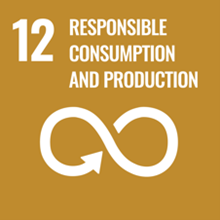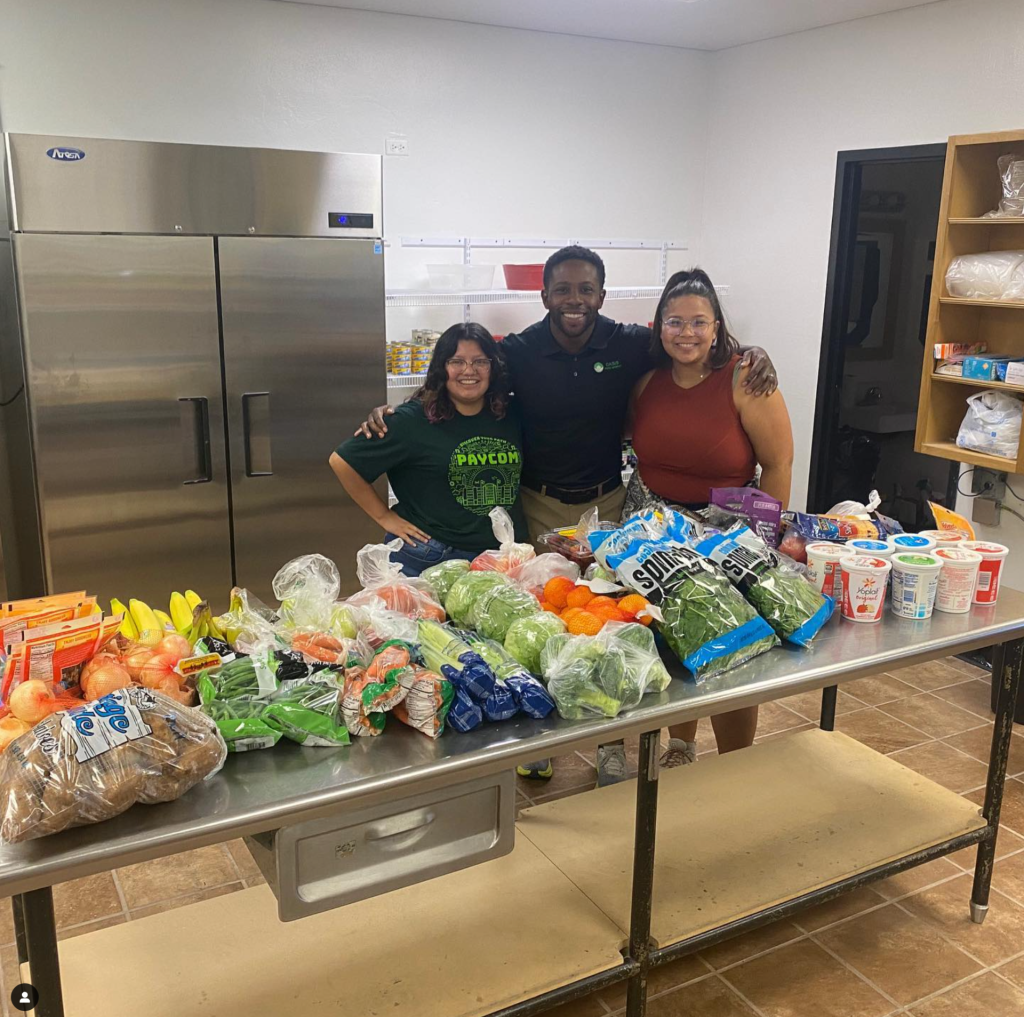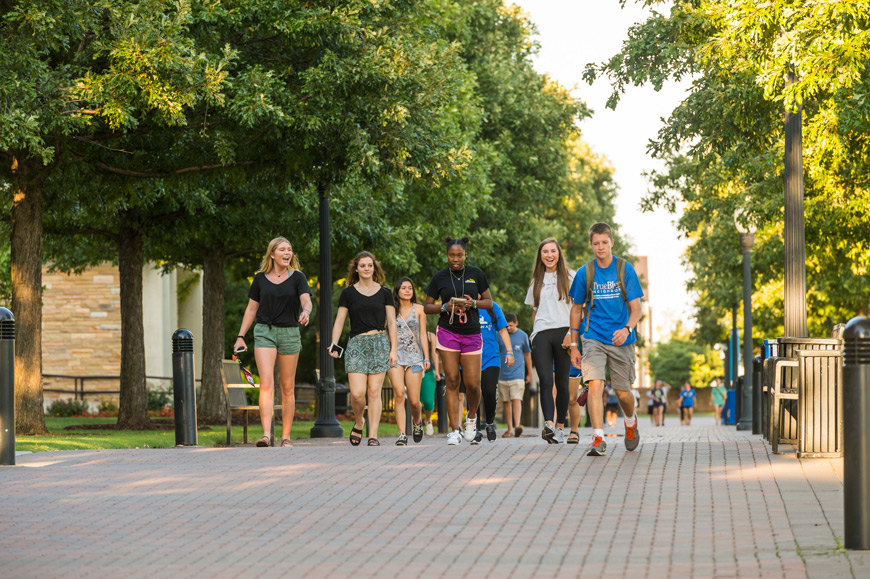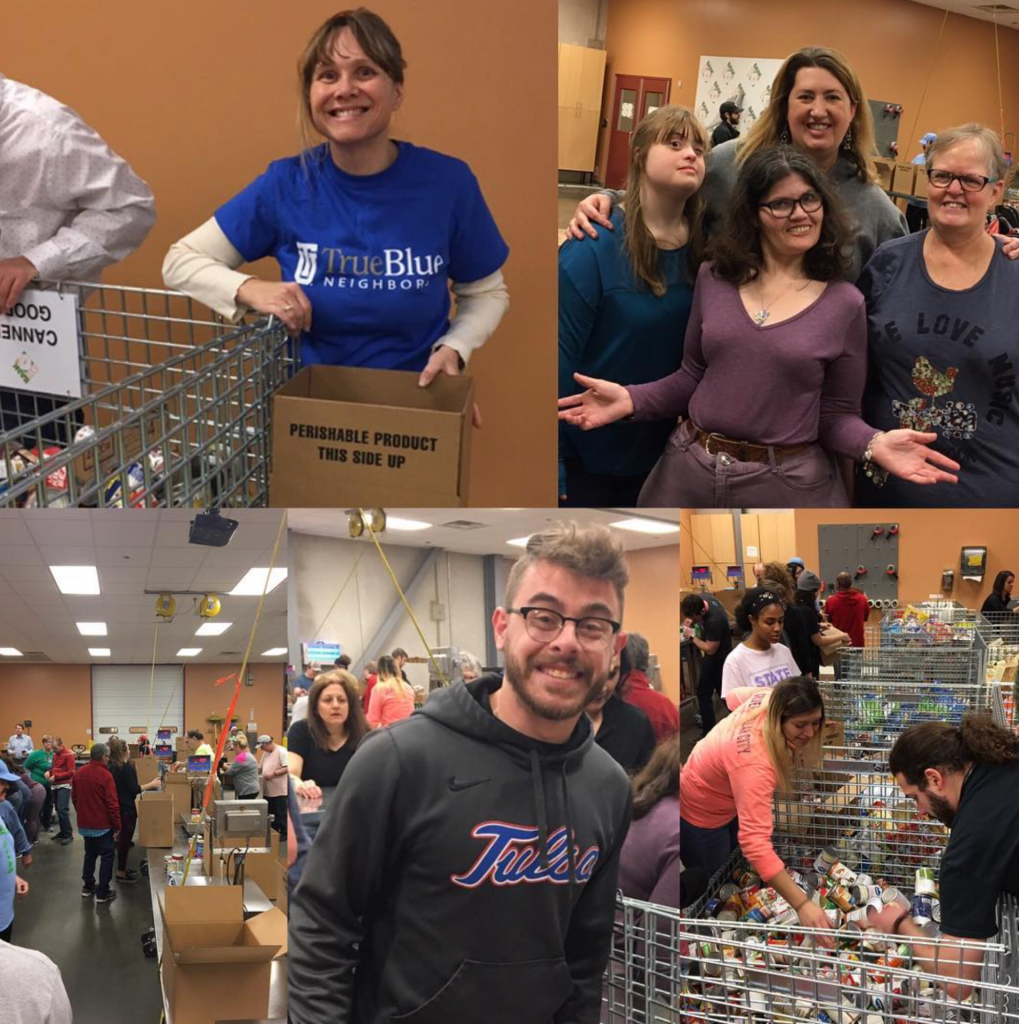
Transform current consumption and production patterns to ensure a more sustainable and equitable future for all
This goal envisions a world where consumption and production are conducted in a manner that respects planetary boundaries, reduces environmental degradation, and promotes social well-being. Achieving this goal is essential for addressing global challenges such as resource depletion, pollution, climate change, and inequality while advancing the principles of sustainable and equitable development.
The University of Tulsa aims to contribute to Sustainable Development Goal 12 in various ways:
- Sustainable Campus Practices: Implement sustainable practices within campus operations, such as reducing energy and water consumption, minimizing waste generation, and promoting recycling and composting.
- Green Building Initiatives: Incorporate sustainable building design principles in new construction and renovation projects on campus, including energy-efficient building materials and practices.
- Waste Reduction Programs: Establish waste reduction programs that encourage responsible consumption by minimizing single-use plastics, promoting reusable containers, and reducing food waste in campus dining facilities.
- Sustainable Food Services: Work with food service providers to offer sustainable and locally sourced food options, reduce food waste, and promote ethical and environmentally friendly food production.


- Transportation Alternatives: Encourage sustainable transportation options for students and staff, such as biking, carpooling, and public transportation, to reduce the carbon footprint associated with commuting.
- Awareness Campaigns: Raise awareness among students and the campus community about responsible consumption and production through educational programs, workshops, and campaigns.
- Partnerships with Industry: Collaborate with industry partners to promote sustainable practices, responsible supply chain management, and ethical production within various sectors.
- Student Initiatives: Support student-led sustainability initiatives, clubs, and organizations that promote responsible consumption and production practices on campus.
- Research and Innovation: Conduct research and innovation projects related to sustainable consumption and production, contributing to knowledge in fields such as circular economy, resource efficiency, and sustainable manufacturing.
- Community Engagement: Engage with the local community to promote sustainable consumption and production practices, collaborate on projects, and share knowledge and best practices.
By actively pursuing these initiatives, TU contributes to SDG 12 by promoting responsible consumption and production practices on campus, raising awareness about sustainability issues, and preparing students to make informed choices that align with the goal of reducing environmental impacts and promoting responsible resource management. These efforts not only benefit the campus community but also contribute to a more sustainable and responsible society at large.

SDG 12 Targets
Implement policies to measure the amount of waste sent to landfill and the amount recycled
Implement policies on minimizing the use of disposable items
Measure the amount of waste generated and recycled
Research
15+
Total Scholars
67
Total Publications
News
- Stuart Price (J.D. ’82) moved to Tulsa in the late 1970s to attend The University of Tulsa’s College of Law, discovering after graduation that his calling was actually as an […]
- Dear UTulsa community, As we begin a vibrant fall semester, I am pleased to share several pieces of good news about the department’s faculty. Associate Professor Laura Ford has been […]
- UTulsa is researching blending hydrogen into natural gas pipelines to reduce carbon emissions by replacing a portion of the methane in the gas with hydrogen, which produces no carbon dioxide […]
- At The University of Tulsa, innovation is taking a step forward with the development of an advanced solar energy conversion system that combines two cutting-edge technologies: concentrated solar power (CSP) […]
- University of Tulsa mechanical engineering alumnus Tim Latimer (BS ’12) was dealing with drilling equipment that kept breaking from the high temperatures deep underground. “I had never even heard of […]
- Growing up in New Mexico where her family operates an oil and gas business, Ileana Braddock was surrounded by people whose livelihoods were impacted by the booms and busts of […]
- This opinion column was written by Andrew Morin and was first published in the Tulsa World. Morin is a research assistant professor in the School of Cyber Studies at The […]
- On June 26, The University of Tulsa (UTulsa) welcomed six representatives from China University of Petroleum (CUP)-Beijing to its campus led by Vice President Guangqing Zhang. The visit marked a […]
- Eleven students from The University of Tulsa are participating in the Future Green Energy Leaders Summer Program hosted by China University of Petroleum, Beijing (CUPB). This is the first time […]
- The University of Tulsa’s (UTulsa) Mohan Kelkar, Ph.D., Chair of Petroleum Engineering, recently traveled to the Bahrain Centre for Strategic, International and Energy Studies to speak on energy transition. The […]